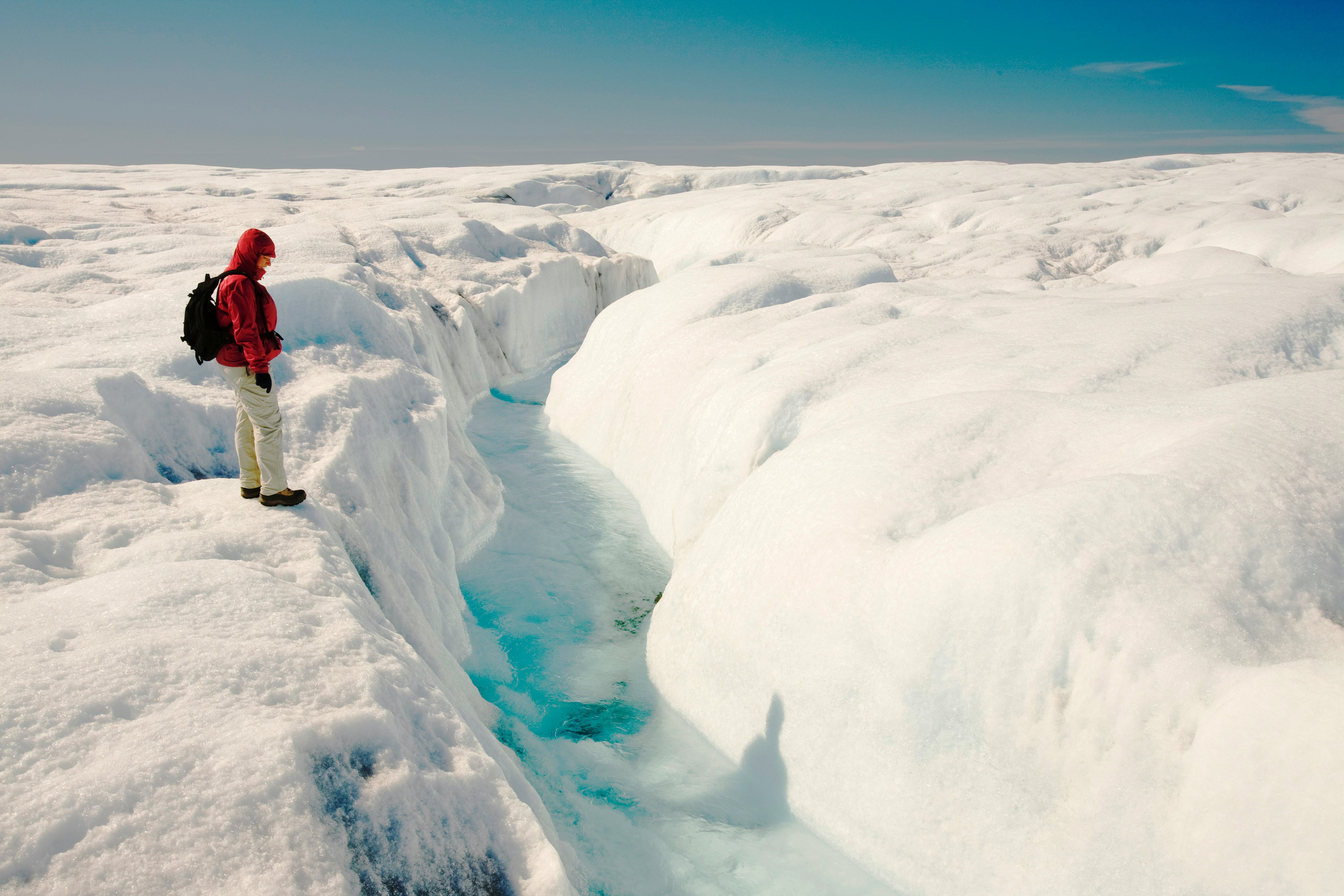
A study published Thursday in the journal Communications Earth & Environment reports that Greenland lost 532 billion tons of ice in 2019, a record amount that shocked the scientists who study the region. Glaciologists say these ice sheets used to be frozen throughout the year, but periods of warm temperatures have increasingly become more common. They believe these warm weather patterns are due to carbon emissions and the acceleration of climate change.
Satellite data of the ice sheet, collected since 2003, played a big role in calculating exactly how much ice was lost. After analyzing the data, the research team estimated that 96 percent of the sheet faced some degree of melting last year.
"[2019 was] really shocking and depressing in terms of the numbers," Ingo Sasgen, head analyst of the study, told The Guardian. "But it's also not very surprising, because we had other strong melt years in 2010 and 2012, and I expect we will see more and more."
The team noticed that the ice sheet experienced less melting during 2017 and 2018, but ice levels remained low, indicating that colder seasons don't rebuild the ice that was lost. One it's gone, it's gone.
"Greenland has become bipolar in a way," Sasgen said. The country's weather has only become more varied and warm over the years. "The real message is that the ice sheet is strongly out of balance."
All that water melting could affect the ocean in ways beyond increasing water levels, a threat that's already alarming coastal communities. Since glaciers and ice are frozen freshwater, the melted water can end up diluting the salt content in our naturally salty oceans. This could cause changes in the ocean current's strength that spur extreme weather and disrupt rain patterns.
Sasgen blamed climate change as the primary driver behind the melting.
"If we look at the record melt years, the top five occurred in the last 10 years, and that is a concern," he told The Guardian. "But we know what to do about it: reduce CO2 emissions."
Lowering the amount of carbon emissions pumped in the air might not restore the ice sheet to its previous glory, but it could slow the melting process long enough for people to create defenses against the effects of the sea level rise.
"If we reduce CO2, we will reduce Arctic warming and we will therefore also reduce the sea level rise contribution from the Greenland ice sheet," Sasgen explained.
"So even though it might eventually disappear in large part, it happens much slower, which would be better as it would allow more time for the 600 million people living near coasts to move away."







